Shrinking lead’: Kamala Harris is ahead in the polls but not by enough
With Donald Trump the favourite in betting markets once again, the Democrats are getting nervous.
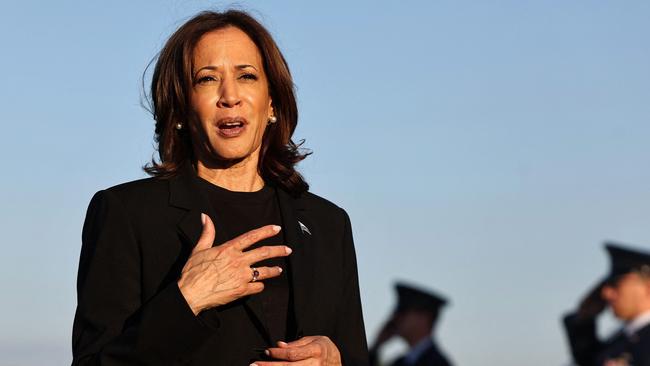
“Remember this number: 32. Today we got 32 days until the election,” she said, before pausing. “So 32 days … 32 days … OK.” That might have been a pause for dramatic effect, but then she added after another pause: “We’ve got some business to do … 32 days.”
No one was left in doubt about the campaign time horizon but many critics seized on the episode, which was widely reported as a teleprompter malfunction, as an example of her inability to speak off the cuff.
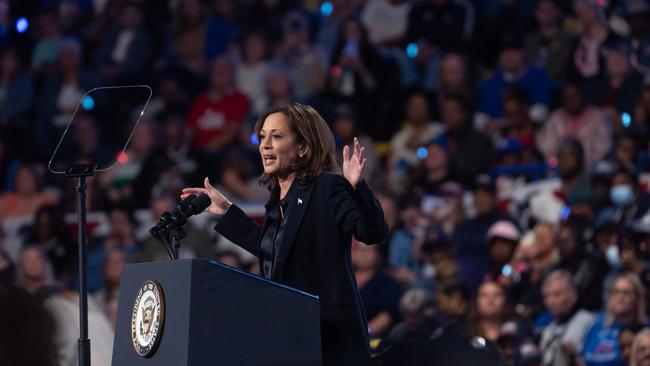
Her campaign never confirmed or denied a glitch. But the event fuelled a perception of incompetence that intensified after Harris’s self-proclaimed “media blitz” whirred into action a few days later, when she contradicted her campaign slogan about “turning the page” by asserting she wouldn’t have done anything different from Joe Biden.
Is the Harris honeymoon over? Even senior Democrats appear to think so, nervously hitting American airwaves this week to decry the post-Democratic National Convention poll bounce that never happened.
On Thursday AEDT, CNN anchor Dana Bash referred to “Democrats who are growing more and more anxious about a 2016 redux”.
A day earlier, veteran MSNBC host Andrea Mitchell opined: “She’s got such a big problem with men … black and white men. But also the business world. They don’t think she’s serious. They don’t think she’s a heavyweight.”
Even Harris’s running mate, folksy Tim Walz, the governor and ex-football coach from ultra-left-wing Minnesota, has started to look like a liability after his middling performance against JD Vance in the vice-presidential debate on October 1.
“I think all of us know the electoral college needs to go,” Walz declared this week, voicing a view unpopular in smaller swing states that Democrats need to win and that would be rendered irrelevant under a national voting system.
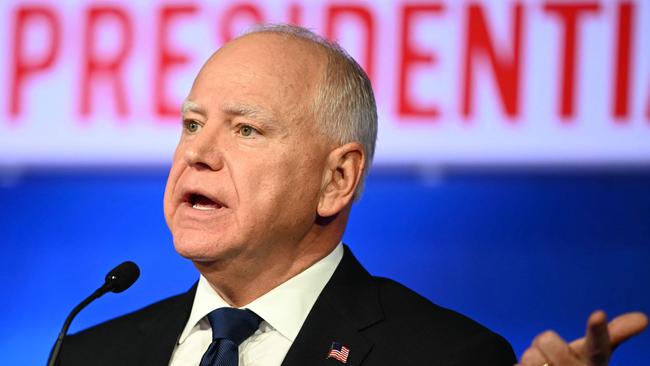
To be sure, every day for the past month Harris has been between 2.5 and three percentage points ahead of Donald Trump in the gold standard average of respectable national polls maintained by go-to psephologist Nate Silver. But it’s probably not enough.
For a start, Harris’s margin of victory in her home state, California, the most populous in the nation by far, presumably will be huge, but every vote beyond winning the state is a waste given it’s the electoral college that determines who wins.
Subtract that big chunk of superfluous votes from a state with 40 million people and you end up with an extremely narrow contest in the rest of the country – especially in those seven critical swing states that will determine the election, where Trump is now ahead in all but two according to RealClear Politics average of polls in those states.
On top of that there’s the likelihood based on history that mainstream polls significantly over-estimate support for Harris, as they did for Hillary Clinton in 2016 and Biden in 2020.
A few days before the election in 2016, Clinton – who was up 3.2 percentage points nationally on RealClearPolitics the day before polling day – even tweeted a childhood picture of herself captioned: “Happy birthday to this future president”.
And mainstream polls overstated support for Democrats by 3.9 percentage points in the weeks leading up to the 2020 presidential election – the largest polling error since 1980, according to a taskforce convened by the American Association for Public Opinion Research. Maybe they have ironed out those errors? But those same errors, in the same direction, were as bad if not worse in 2016.
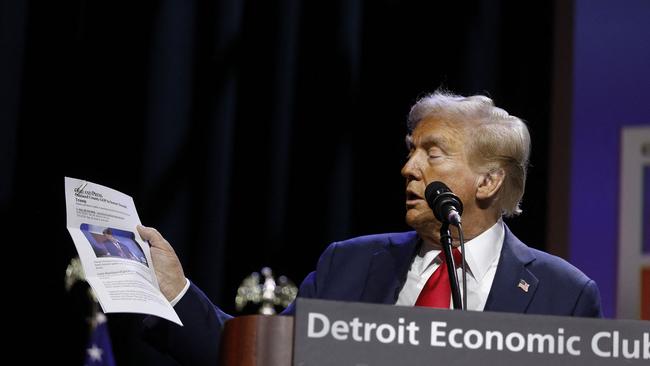
Perhaps this is why Trump is the favourite in political betting markets once again as of last week – 51 per cent to 47 per cent, according to the average of eight bookies’ odds quotes compiled by RealClearPolitics.
And as any rational punter would know, those odds naturally factor in the probability another would-be assassin takes a shot at Trump and knocks him out of the race, an outcome that is probably in the low single digits, but enough to depress his estimated likelihood of winning.
Republicans belatedly have embraced the importance of urging their supporters to vote by mail if they wish ahead of this year’s election.
After Trump disparaged the option in 2020, only 32 per cent of Republicans voted by mail compared with 58 per cent of Democrats, potentially costing the GOP millions of votes among supporters who chose not to head out to polling locations and brave the Covid-19 virus.
So Trump is in a better position politically than he was at the corresponding stage of the campaign in 2016 or 2020.
Moreover, in two of the three top issues for voters, according to the New York Times/Sienna poll this week that put Harris three percentage points ahead of Trump nationally, Trump and Republicans are overwhelmingly trusted more on two of them: the economy, the No.1 issue by far, and immigration.
Democrats have been crowing about strong jobs growth in recently months, which has kept the unemployment rate around the historically low level of 4 per cent.
But any political benefit is far outweighed by four years of the highest inflation since the 1980s.
Unemployment affects only the unemployed, who are a tiny share of swing voters. High prices, which are up almost 20 per cent since early 2021, affect everyone every day, a far more insidious political force.
The Covid chaos of 2020 snuffed out any hope of a Trump second term. It may be the delayed consequences of the response to it after trillions of dollars of new money was pumped into the economy that puts him back in the White House.
Furthermore, the influx into the US of many millions of illegal immigrants, between six million and 11 million depending on the source, has rattled Americans, who see the impact on house prices (up more than 30 per cent) and rightly or wrongly link increased illegal immigration to reports of increased crime.
Harris undoubtedly thrashes Trump on the third big issue, abortion rights, which Trump helped curtail by appointing conservative US Supreme Court justices who handed the decision back to the individual states.
The geopolitical outlook over the next few weeks could favour Trump, too: should Israel strike Iran’s oil production capacity in coming days, as some analysts predict, the global oil and bowser prices will jump, an economic development that hurts incumbent governments like nothing else.
Even the perception the US could be drawn into another deadly Middle Eastern war could hurt the ruling party, especially among families in regional and rural swing states who don’t want their sons and daughters sent off to die in the thousands once again.
Americans have never seen two such different candidates, pursing such different political strategies, vie for the White House.
The authentic Trump, however flawed, has pursued maximum media exposure, giving so many podcasts and interviews they receive little media scrutiny.
Harris, the relatively little known woman of colour from a middle class background, has cautiously kept herself away from the media scrutiny more than any other presidential candidate in history.
Whether that strategy changes in coming weeks may reflect the confidence her team has in her abilities.
As they say, a week is a long time in politics – but for now Trump is looking a pretty good bet for November.




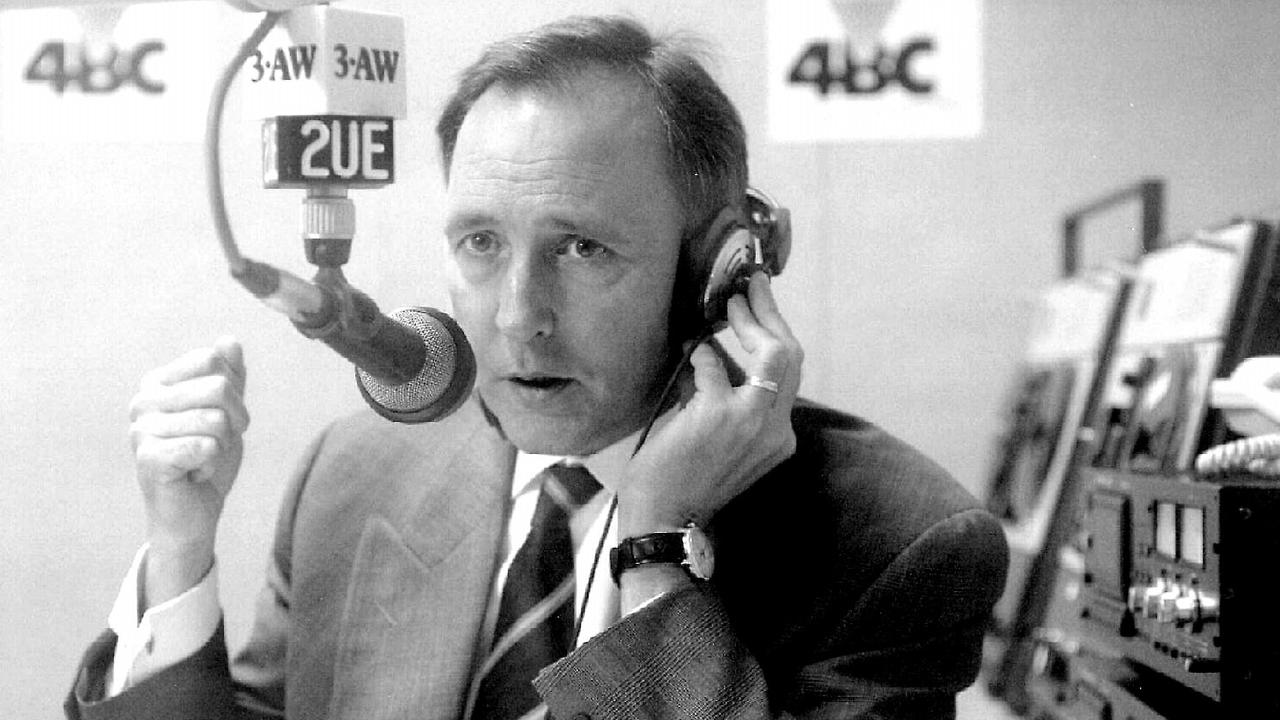
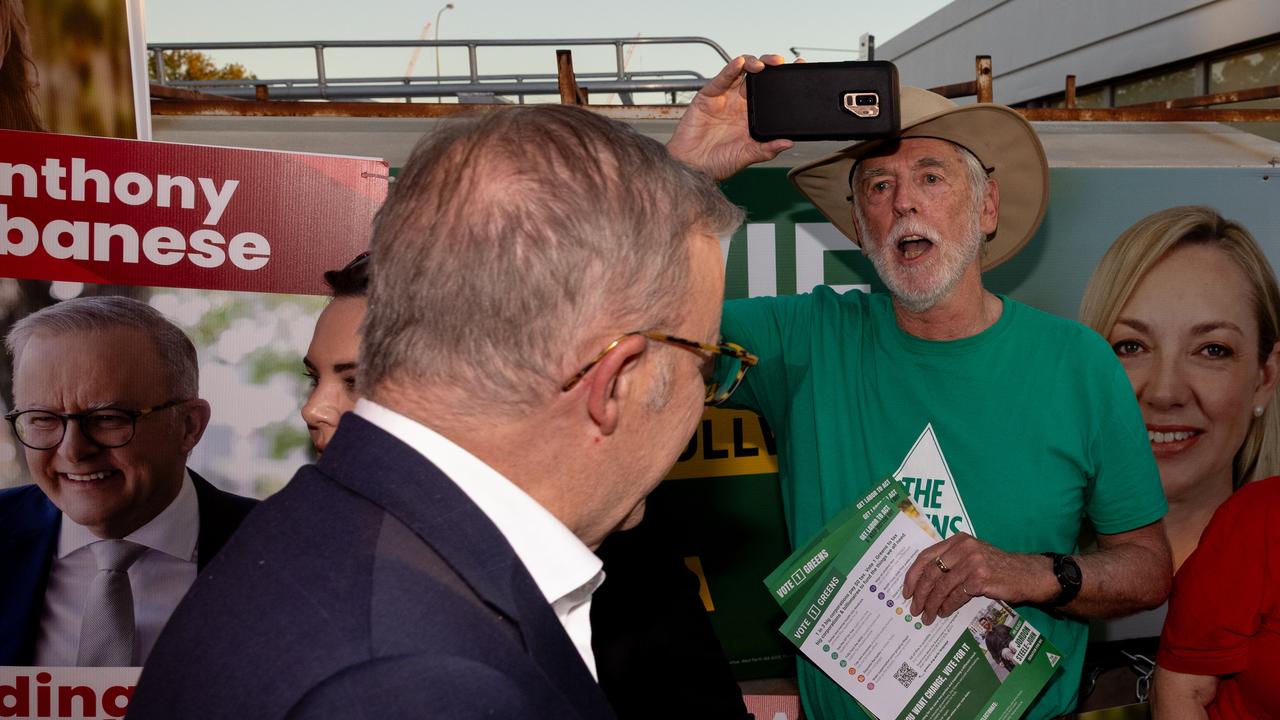
At a campaign rally in the crucial battleground state of Michigan on Friday last week, Kamala Harris suddenly behaved strangely, repeating several times the line “32 days”, in reference to the time remaining until the November 5 presidential poll.